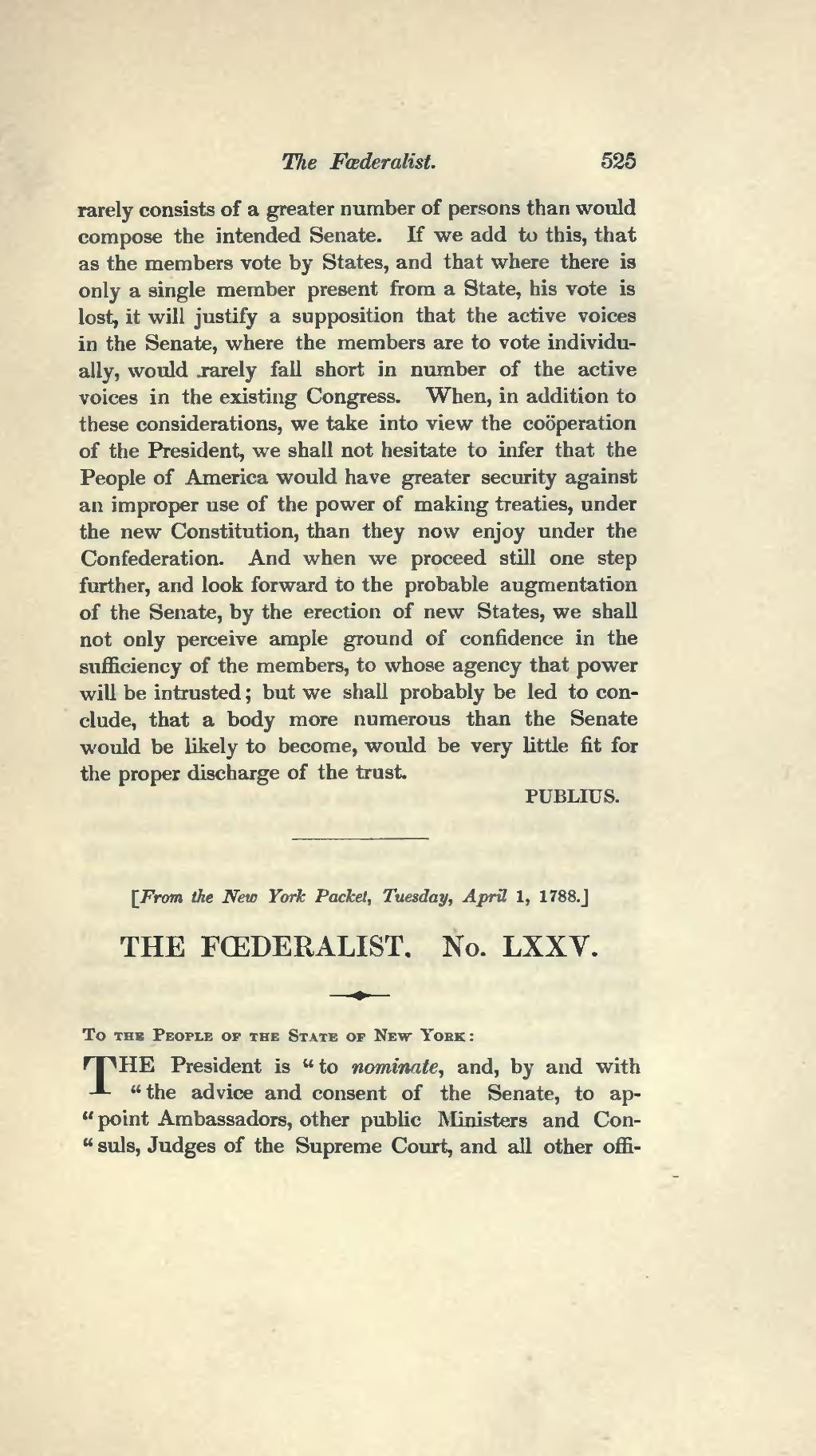rarely consists of a greater number of persons than would compose the intended Senate. If we add to this, that as the members vote by States, and that where there is only a single member present from a State, his vote is lost, it will justify a supposition that the active voices in the Senate, where the members are to vote individually, would rarely fall short in number of the active voices in the existing Congress. When, in addition to these considerations, we take into view the coöperation of the President, we shall not hesitate to infer that the People of America would have greater security against an improper use of the power of making treaties, under the new Constitution, than they now enjoy under the Confederation. And when we proceed still one step further, and look forward to the probable augmentation of the Senate, by the erection of new States, we shall not only perceive ample ground of confidence in the sufficiency of the members, to whose agency that power will be intrusted; but we shall probably be led to conclude, that a body more numerous than the Senate would be likely to become, would be very little fit for the proper discharge of the trust.
PUBLIUS.
[From the New York Packet, Tuesday, April 1, 1788.]
THE FŒDERALIST. No. LXXV.
To the People of the State of New York:
THE President is "to nominate, and, by and with the advice and consent of the Senate, to appoint Ambassadors, other public Ministers and Consuls, Judges of the Supreme Court, and all other offi-
